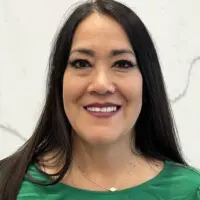Helped me through a really rough time, incredibly grateful for everything that they've done and for how they made me open my eyes and how they brought my family and me together again!
About Southwest Network
Southwest Network inspires hope, independent living and recovery through quality mental health and substance use treatment. Their integrated care offerings in Peoria, Arizona support adults, adolescents and children. One of the things I like about this facility is that they provide translation support across varying languages like Spanish, Arabic and Portuguese. Their services can guide you toward lasting healing from chronic mental health issues as well as substance use disorders. It’s all about helping you achieve greater health, wellness and happiness.
They’re equipped to handle dual diagnosis conditions as well. This is when someone simultaneously struggles with both substance use and mental issues at the same time. They particularly make their services accessible by accepting AHCCCS/Medicaid and Medicare. The team will work with you even if you’re uninsured or unable to pay.
Recovery in Peoria, Arizona
The clinic is just 1.5 miles from the bustling P83 Entertainment District and 2.5 miles southeast of the Rio Vista Community Park. Other nearby landmarks like Thunderbird Conservation Park and Lake Pleasant Regional Park add to the area’s beauty. Valley Metro bus routes serve the area, but service is limited. The facility offers transportation assistance which makes things more convenient.
Substance Use and Mental Health Treatment for Adolescents
Southwest Network offers tailored recovery for adolescents that guides them toward a healthier, more productive and hopeful future. You’ll first undergo comprehensive psychiatric and substance use evaluation during intake. You’ll then work with a case manager to craft a personalized care plan based on your assessed needs. You’ll attend counseling and therapy to work through personal challenges and develop coping skills that support your recovery.
They may employ the popular Child and Family Team Process to help you navigate specific issues that may impede your recovery. Psychiatric medication prescriptions and medication management are integral components of the services. This can form part of your integrated care plan if you’re dealing with a dual diagnosis. They also offer parenting and family support to ensure your loved ones are very much involved in your recovery.
Transition to Independence Program
You can benefit from their transition to independence programs or TIP if you’re over 16.5 years old. TIP uses a tailored approach to engage and empower youths, helping them plan for the future and build life skills that support independent living.
They can connect you with family support partners to help you access valuable community resources as you move forward in recovery. This may encompass family counseling, educational support and job training.
Latest Reviews
Rehab Score
Location
Accepted Insurance
Other Forms of Payment
Medicaid is a state based program that helps lower-income individuals and families pay for healthcare. Medicaid covers addiction treatment so those enrolled can use their coverage to pay for rehab. When a program accepts Medicaid the client often pays very little or nothing out of their own pocket.
Private insurance refers to any kind of healthcare coverage that isn't from the state or federal government. This includes individual and family plans offered by an employer or purchased from the Insurance Marketplace. Every plan will have different requirements and out of pocket costs so be sure to get the full details before you start treatment.
Self-pay involves paying for treatment out of your own pocket. You can use savings or credit, get a personal loan, or receive help from family and friends to fund your treatment. If you don't have insurance or your insurance plan doesn't cover a specific program, self-pay can help ensure you still get the care you need.
Sliding scale payments are based on a client's income and family size. The goal is to make treatment affordable to everyone. By taking these factors into account, addiction recovery care providers help ensure that your treatment does not become a financial burden to you or your family, eliminating one barrier to care.
Addiction Treatments
Levels of Care
Outpatient Programs (OP) are for those seeking mental rehab or drug rehab, but who also stay at home every night. The main difference between outpatient treatment (OP) and intensive outpatient treatment (IOP) lies in the amount of hours the patient spends at the facility. Most of the time an outpatient program is designed for someone who has completed an inpatient stay and is looking to continue their growth in recovery. Outpatient is not meant to be the starting point, it is commonly referred to as aftercare.
Treatments
Mental health rehabs focus on helping individuals recover from mental illnesses like bipolar disorder, clinical depression, anxiety disorders, schizophrenia, and more. Mental health professionals at these facilities are trained to understand and treat mental health issues, both in individual and group settings.
Clinical Services
Cognitive Behavioral Therapy (CBT) is a therapy modality that focuses on the relationship between one's thoughts, feelings, and behaviors. It is used to establish and allow for healthy responses to thoughts and feelings (instead of unhealthy responses, like using drugs or alcohol). CBT has been proven effective for recovering addicts of all kinds, and is used to strengthen a patient's own self-awareness and ability to self-regulate. CBT allows individuals to monitor their own emotional state, become more adept at communicating with others, and manage stress without needing to engage in substance abuse.
Whether a marriage or other committed relationship, an intimate partnership is one of the most important aspects of a person's life. Drug and alcohol addiction affects both members of a couple in deep and meaningful ways, as does rehab and recovery. Couples therapy and other couples-focused treatment programs are significant parts of exploring triggers of addiction, as well as learning how to build healthy patterns to support ongoing sobriety.
Research clearly demonstrates that recovery is far more successful and sustainable when loved ones like family members participate in rehab and substance abuse treatment. Genetic factors may be at play when it comes to drug and alcohol addiction, as well as mental health issues. Family dynamics often play a critical role in addiction triggers, and if properly educated, family members can be a strong source of support when it comes to rehabilitation.
Group therapy is any therapeutic work that happens in a group (not one-on-one). There are a number of different group therapy modalities, including support groups, experiential therapy, psycho-education, and more. Group therapy involves treatment as well as processing interaction between group members.
In individual therapy, a patient meets one-on-one with a trained psychologist or counselor. Therapy is a pivotal part of effective substance abuse treatment, as it often covers root causes of addiction, including challenges faced by the patient in their social, family, and work/school life.
Trauma therapy addresses traumatic incidents from a client's past that are likely affecting their present-day experience. Trauma is often one of the primary triggers and potential causes of addiction, and can stem from child sexual abuse, domestic violence, having a parent with a mental illness, losing one or both parents at a young age, teenage or adult sexual assault, or any number of other factors. The purpose of trauma therapy is to allow a patient to process trauma and move through and past it, with the help of trained and compassionate mental health professionals.
Staff

Amy B. Henning
President and Chief Executive Officer

Katrina Noyes
Chief Quality and Compliance Officer

Teresa Celaya- Garner
Chief Financial Officer

Nahid Nadiri
Medical Director
Contact Information
9051 West Kelton Lane
Peoria, AZ 85382






